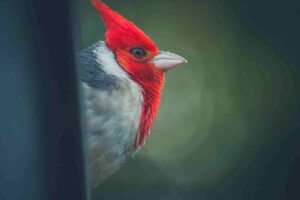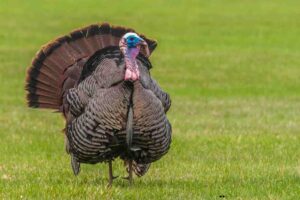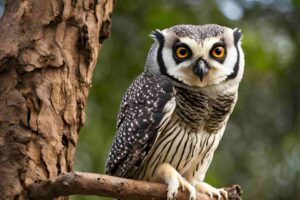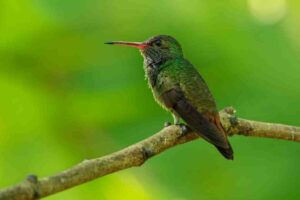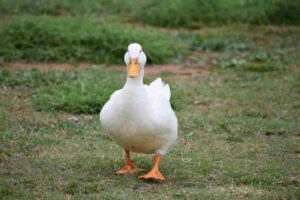Owls have long intrigued humanity with their haunting calls that echo through the stillness of the night. If you’ve ever found yourself captivated by the sound of an owl hooting in the dark, you may wonder, “Why do owls hoot at night?” This article delves into this captivating question, exploring the reasons behind owl vocalizations and their spiritual meanings, as well as specific behaviors related to climate, geography, and season.
Why Do Owls Hoot at Night? The Basics of Owl Communication

Owls are primarily nocturnal creatures, meaning they are active at night. The primary reason owls hoot at night is to communicate with each other. These sounds serve various purposes, from establishing territory to attracting mates. Owls are solitary birds by nature, and their calls help them delineate their space and avoid confrontations with neighbors. A hoot may signal, “This is my territory,” or it can serve as a mating call to attract potential partners.
Explore more info about: What Are The Characteristics Of A East Dawn Chorus Owl.
Why Do Owls Hoot at Night Spiritual Meaning

Beyond their physical communication needs, many cultures attribute significant spiritual meanings to the hooting of owls. Owls are often seen as omens, representing wisdom, change, and mystery. In some traditions, hearing an owl hoot at night signifies that an important message or spiritual insight may be on the horizon. It can symbolize the need for introspection or a call to embrace life’s mysteries. Thus, when you ponder the question, “Why do owls hoot at night?” it may also invite deeper reflection on your own life journey.
Why Do Owls Hoot at Night Time? A Behavioral Perspective

From a behavioral perspective, the timing of owl hoots is crucial for their survival. The darkness of night not only offers camouflage but also reduces competition with diurnal, or daytime, birds. While hunting for food, owls rely on their exceptional night vision and keen hearing. During these nocturnal hours, they utilize their hoots to maintain communication without revealing their precise location, ensuring hunting success and avoiding potential threats.
read all about: Do Owls Eat Squirrels? Exploring the Interesting Dietary Habits of Owls
Why Do Owls Hoot at Night in the Winter? Seasonal Behavior
Interestingly, the reasons owls hoot at night can change with the seasons. In winter, when food is scarcer, many owl species become more vocal. They hoot more frequently to establish territory and attract mates. The cold months may drive owls to hoot to signal their presence to potential mates or rivals, ensuring they have a chance to reproduce in the spring when food becomes more abundant.
Why Do Owls Hoot at Night in the UK? Cultural Context
In the UK, owls, especially the famous Barn Owl and Tawny Owl, are revered in folklore and wildlife conservation debates. The question, “Why do owls hoot at night in the UK?” can be answered through a lens of local ecology and culture. British owls hoot primarily for communication, much like their counterparts worldwide. However, in the UK, they have taken on unique cultural symbolism, often represented as harbingers of change or symbols of the unknown.
Conclusion
Owls hoot at night for a plethora of reasons—territorial calls, mating rituals, and effective communication. They resonate with deeper spiritual meanings and serve essential roles in their ecological systems. By understanding why owls hoot, we gain insight into these enigmatic creatures and the mysteries of our natural world.
FAQs
1. Do owls hoot during the day?
While owls are predominantly nocturnal, some species may hoot during the day, particularly if they are disturbed or need to communicate with their mates.
2. What other sounds do owls make?
In addition to hooting, owls make various sounds, including screeches, whistles, and barks. Each sound serves different purposes in their communication.
3. Are all owls hooters?
Not all owl species produce hoots; some may make different sounds. For example, Barn Owls are known for their eerie screech rather than traditional hoots.
4. Why do owls have different hoots?
The variations in hoots among different species serve specific functions, such as signaling identity, territory, or mating calls.
5. Is it a good sign to hear an owl hoot?
Many cultures view hearing an owl hoot as a positive omen related to wisdom or an imperative message from the spiritual realm.
By exploring the reasons behind owl hoots and their significance, we can deepen our appreciation for these mystical birds and their role in our ecosystems.

